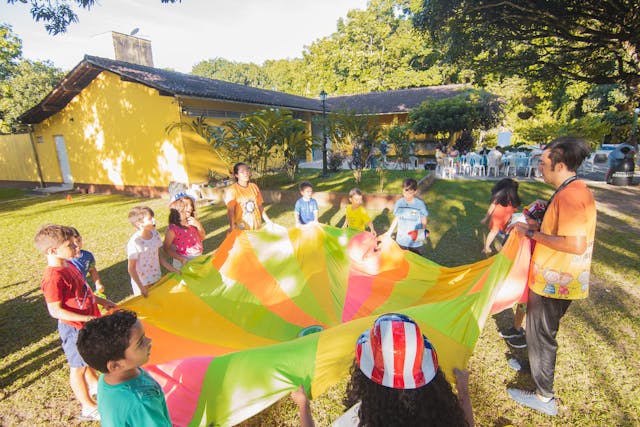Choosing the right preschool for your child is a significant decision that can feel overwhelming. With numerous options available, it’s easy to make mistakes that might affect your child’s early learning experience. Whether you’re exploring traditional preschools or innovative approaches like KLA Schools programs, carefully evaluating your options can ensure your child starts their educational journey on the right foot.

Not Considering Your Child’s Individual Needs
One of parents’ most frequent mistakes is selecting a preschool without considering their child’s unique personality, needs, and learning style. Each child is different, and what suits one might not be ideal for another.
Key Considerations
- Temperament: Is your child more comfortable in a structured environment with clear routines or a more flexible setting that encourages exploration?
- Handling Transitions: How does your child cope with changes in routine or new environments?
- Activity Preferences: Does your child prefer group activities or solo play?
Choosing a preschool that matches your child’s temperament and learning style can lead to a more enjoyable and practical preschool experience.
Focusing Too Much on Academics
While it’s important for children to be prepared for kindergarten, overemphasizing academic readiness can overshadow other crucial aspects of preschool. The early years are about learning letters and numbers and developing social skills, emotional resilience, and a love for learning.
Balance is Key
- Play-Based Learning: Ensure the preschool offers play opportunities that foster creativity and problem-solving.
- Social Skills: Look for programs emphasizing peer interaction and cooperative play.
- Emotional Growth: A good preschool helps children develop emotional regulation and confidence.
A well-rounded preschool program supports cognitive development and emotional well-being, setting a solid foundation for future learning.
Overlooking Teacher Qualifications and Turnover Rates
A common oversight is not paying enough attention to the qualifications of the teaching staff or the turnover rates. The quality and stability of the teaching staff play a crucial role in your child’s experience.
What to Look For
- Credentials: Ensure teachers have appropriate early childhood education qualifications.
- Experience: Look for teachers with experience handling young children and supporting their developmental needs.
- Stability: High teacher turnover can disrupt classroom stability and affect your child’s ability to form secure relationships with their teachers.
Well-trained Teachers who stay with the program longer can provide a more consistent and supportive learning environment.
Neglecting to Observe the Classroom in Action
Another frequent mistake is not visiting the preschool and observing the classroom dynamics firsthand. While brochures and websites provide useful information, they can’t replace the insights from seeing the environment in person.
During Your Visit
- Teacher Interaction: Observe how teachers engage with the children. Are they attentive and supportive?
- Classroom Environment: Note the organization of the classroom and how well it supports various activities.
- Children’s Engagement: Look at how the children interact with each other and with their surroundings. Are they engaged and happy?
Visiting the preschool allows you to see the environment and teaching methods in action, helping you gauge whether it’s a good fit for your child.
Ignoring Class Size and Student-to-Teacher Ratios
Class size and student-to-teacher ratios are crucial factors that can negatively impact your child’s preschool experience. Smaller class sizes and lower student-to-teacher ratios often lead to more personalized attention and a better environment for learning.
Important Considerations
- Class Size: Smaller classes allow for more individualized attention and better supervision.
- Student-to-Teacher Ratio: A lower ratio ensures that each child receives more support and guidance from the teacher.
These factors contribute to a more engaging and supportive preschool experience, allowing teachers to address each child’s needs better.
Not Asking About the Daily Schedule
Many parents overlook the importance of understanding a preschool’s daily schedule. The daily routine can significantly influence your child’s experience and development.
Key Aspects to Inquire About
- Activity Schedule: Ask how time is allocated for various activities, including structured learning, free play, and rest.
- Balance: Ensure a good mix of activities supporting learning and social development.
A well-balanced schedule that includes time for both structured and unstructured activities supports a well-rounded developmental experience for your child.
Take Time to Research and Visit Schools
Avoiding these common mistakes can help you make more informed, confident decisions when selecting a preschool for your child. Take the time to research various programs, visit schools, and ask detailed questions to ensure that the program fits with your child’s needs and your family’s values.
















Add Your Comment